
by Grow Up Conference | Nov 28, 2024 | Media Partners, Stratcann
RCMP officers in Nova Scotia seized cannabis from an illegal storefront in Middle Sackville for the second time in a week and the third time since last November.
On November 27, RCMP Halifax Regional Detachment, assisted by officers from RCMP Southeast Traffic Services, executed a search warrant at what they say was an illegal cannabis storefront operating on Sackville Dr., near Stanley St.
A 40-year-old Dartmouth man was arrested at the scene.
Police say that during the search, officers seized cash, electronic mobile devices, unstamped tobacco, illegal cannabis, hashish, and vape products. The location is near a community centre and public school.
Lower Sackville is located about a half hour’s drive from Halifax.
RCMP officers also previously executed a search warrant at the same storefront on November 20. During that search, investigators seized illegal cannabis and arrested a 53-year-old Halifax man.
Both men were released on conditions and will appear in Dartmouth Provincial Court to face charges of Possession for the Purpose of Distributing and Possession for the Purpose of Selling under the Cannabis Act.
The investigations remain ongoing.

by Grow Up Conference | Nov 28, 2024 | Media Partners, Stratcann
A Canadian man has been sentenced to life in prison in Dubai for possessing CBD oil, reports an online publication called Detained in Dubai.
In a post on November 27, 2024, the website alleges that a 64-year-old man, from Mississauga, Maurice Kevin O’Rourke, was detained in Dubai during a transfer through the country on his way from Canada to South Africa.
O’Rourke, says the article, uses CBD to manage his symptoms from Addison’s disease, a rare chronic condition where the adrenal glands don’t produce enough of the hormones cortisol and aldosterone.
O’Rourke’s wife, Pamela, tells Detained in Dubai that her husband was arrested and taken to Al Awir prison in July. On October 31 he was sentenced to life in prison and issued a 500,000 AED fine (around $191,000 CAD).
She says her husband, who goes by Kevin, was prescribed CBD by his doctor.
“Our world fell apart,” she is quoted as saying in the publication. “Our daughter Maegan and I are shattered. We’re in disbelief. Kevin accepts that he shouldn’t have travelled while on medication but he doesn’t deserve to spend the rest of his life in prison. It was an innocent mistake.”
Her husband is not able to get the care he needs while in Dubai, she notes.
“When he was arrested, local doctors had a hard time getting the medications, which impacted his immune system. He contracted an MRSA infection, had two emergency surgeries, spent forty days in hospital and has subsequently been fighting an infection. He has an open wound in prison. In three months he went from being strong and healthy to being in a wheelchair. It’s been incredibly distressing and life threatening for him.”
The National Post reports that, in response to questions about O’Rourke’s situation and what Canada is doing to secure his release and safe return, a spokesperson from Global Affairs Canada said the agency is “aware of the detention of a Canadian citizen” and that “consular officials are in touch with local authorities and are providing consular assistance.”
“We hope the Canadian government is able to help Kevin as they did André Gauthier and hope the government of Dubai shows some mercy to his family,” Pamela O’Rourke is reported as telling Detained in Dubai.
“We have written to Peter Fonseca, MP, and hope he can work with Mélanie Joly and Justin Trudeau to help the O’Rourke family before it’s too late.”
You can read more about the issue here.
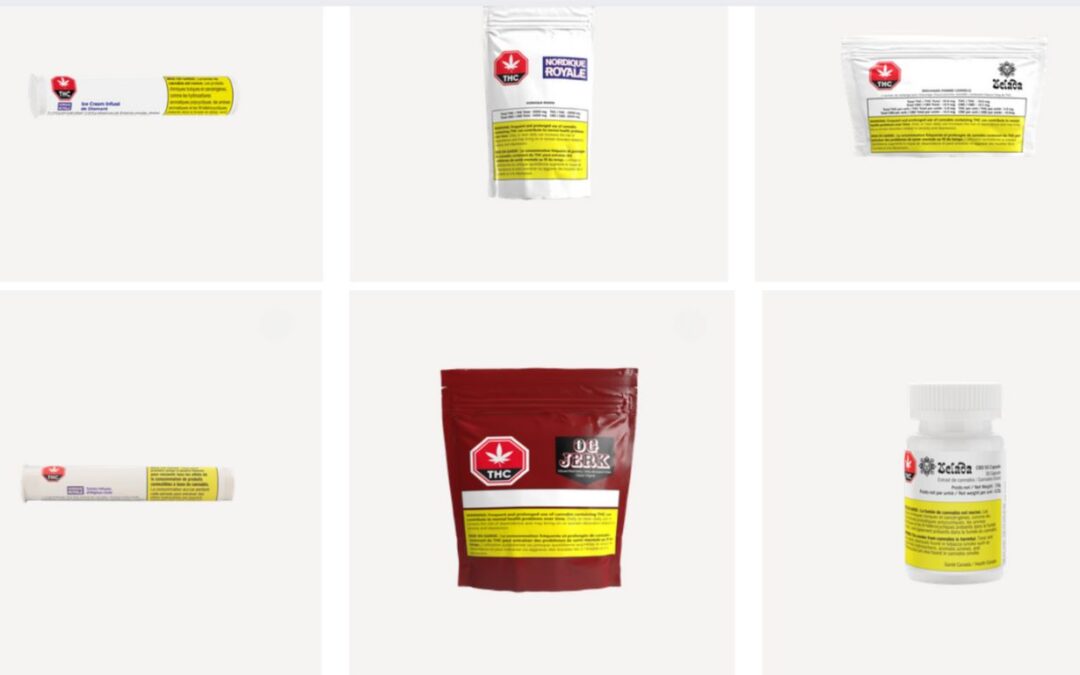
by Grow Up Conference | Nov 27, 2024 | Media Partners, Stratcann
The Good Shroom Co. Inc., cannabis and cannabis-infused products for the Canadian market, reported $3.9 million in net revenue in the year ended July 31, 2024, with net profits of $40,603.
This is up significantly compared to a net loss of $452,140 in the previous year.
The majority of The Good Shroom’s sales (more than 96%) are from cannabis products. In addition to cannabis products, The Good Shroom also produces a line of branded instant tea and coffee-based beverages under the brand Teonan.
The company currently sells cannabis products primarily in Quebec but also has some listings in Alberta, Ontario, and Prince Edward Island as of Q1 of the current fiscal year. They sell edibles, capsules and dried flower, as well as hash-infused pre-rolls.
A total of 89% of the company’s revenues were from one customer (93% for the year ended July 31, 2023) of its revenues are from one customer. The Good Shroom sells under the brand Seul CBD. Suel CBD also offers products under the Astro Nutas, Nordique Royale, Spring Hill, Velada, and OG Jerk brands, including an array of uniquely infused edibles like beef jerky and pepperettes.
“Achieving profitability in an industry as challenging as ours is an accomplishment we take pride in,” said Eric Ronsse, CEO of The Good Shroom Co. Inc. “While this milestone reflects the strength of our asset-light business model and financial discipline, our focus remains firmly on the future—continuing to innovate, expand, and deliver lasting value.”
One way The Good Shroom says it has increased profit margins in its most recent fiscal year is by focusing on products with a lower federal excise rate like dried flower or edibles, rather than extracts or concentrates like hash. This resulted in an excise tax cost as of July 31, 2024, at $742,623 compared to $897,338 in the prior year.
“For example,” the company notes in its report, “typically a hash product in the concentrates category, depending on size, would cost $6-$9/unit in excise. However, by comparison all products in dried flower categories of standard 3.5 gram size only cost $3.50/unit in excise. Others such as edible cannabis products also have much lower excise, on average $0.10/unit and CBD only products have no excise at all.”
Sales of The Good Shroom’s Teonan instant beverages were $157,258 for the year ended July 31, 2024, compared to $184,674 for the comparable period last year.
The company was first licensed as a micro processor in November 2019 before scaling up to a standard processing licence in October 2023. The Good Shroom recently released a THC-infused oral pouch in the Alberta market.

by Grow Up Conference | Nov 27, 2024 | Cannabis News Wire, Media Partners
The journey toward cannabis legalization in the United States has been significant, with nearly half of the states now allowing its recreational use. However, the topic remains contentious and divisive, frequently leveraged by politicians. Some invoke fears about potential harm to oppose legalization, while others emphasize benefits such as increased revenue and reduced violent crime to advocate for it.
Scientific research on marijuana-related harms is relatively comprehensive. Regular consumption of high-potency marijuana, especially when initiated at a young age, is linked to mental health issues, including schizophrenia. It may also lead to cognitive difficulties, reduced academic performance, and an elevated risk of marijuana use disorder.
Consuming marijuana before driving—particularly within an eight-hour window—significantly raises the likelihood of traffic accidents. Additionally, cannabis use while pregnant has been associated with complications at birth.
A key question in this debate is how legalization influences these risks. The potency of cannabis, which directly impacts its harmful effects, has been rising in states with legal markets. This trend toward high-potency products began during cannabis prohibition in both Europe and the U.S. Some evidence also suggests that legal dispensaries may overstate potency levels to attract customers.
Marijuana use appears higher in states where it is legal, though this does not necessarily mean that legalization causes increased use. Research paints a mixed picture. While adult usage rates tend to rise after legalization, most studies show little to no change in marijuana use among adolescents. One complicating factor is that marijuana use has been on the rise since 2000, well before legalization became a trend.
A concerning trend tied to legalization is a rise in ER visits related to marijuana-induced psychosis and unintentional poisoning in youngsters. These incidents are more common in areas with a high density of marijuana stores and are partly attributed to the popularity of edible products, often designed to look like candy.
The question of marijuana legalization is not black and white. Decisions about drug policy can significantly influence both the prevalence of use and the societal impact. Lessons can be drawn from Uruguay, which legalized marijuana in 2012 while implementing strict regulations. The country has not seen a notable increase in marijuana use, addiction rates, or perceived harm compared to its neighbors.
Additionally, discussions on legalization must weigh the drawbacks of prohibition. Criminal organizations often profit from the illicit drug trade, fueling violence and expanding their reach. Research shows that strict drug law enforcement does not effectively prevent marijuana use and may even exacerbate related harms.
Ultimately, there is no flawless approach to drug policy, and substances like marijuana are likely to remain a part of society. Policymakers should adopt an evidence-based and balanced approach, learning from global examples to create thoughtful marijuana regulations that minimize harm and prioritize public health.
This balanced approach is precisely what the cannabis industry, including leading players like Cresco Labs Inc. (CSE: CL) (OTCQX: CRLBF), wish for every jurisdiction that is considering reforming its marijuana laws through voter initiatives or the legislature.
About CNW420
CNW420 spotlights the latest developments in the rapidly evolving cannabis industry through the release of an article each business day at 4:20 p.m. Eastern – a tribute to the time synonymous with cannabis culture. The concise, informative content serves as a gateway for investors interested in the legalized cannabis sector and provides updates on how regulatory developments may impact financial markets. If marijuana and the burgeoning industry surrounding it are on your radar, CNW420 is for you! Check back daily to stay up-to-date on the latest milestones in the fast -changing world of cannabis.
To receive SMS alerts from CNW, text CANNABIS to 888-902-4192 (U.S. Mobile Phones Only)
For more information, please visit https://www.CannabisNewsWire.com
Please see full terms of use and disclaimers on the CannabisNewsWire website applicable to all content provided by CNW, wherever published or re-published: https://www.CannabisNewsWire.com/Disclaimer
CannabisNewsWire
Denver, CO
www.CannabisNewsWire.com
303.498.7722 Office
Editor@CannabisNewsWire.com
CannabisNewsWire is powered by IBN

by Grow Up Conference | Nov 27, 2024 | Media Partners, The New Agora
Beyond the Domain of White Noise
& Beyond the Imagination of the Pale Horse
by Happy Parrot
If we leave all the cascading thieving noise behind us, all loud bells that scream tirelessly for our attention, wishing for premature hemorrhage in our ears and eyes, is there anything left to be said, or is this just a moment where we enter the eye of the storm with our arms open… when the slap of true reality confronts our inner being without derelict blows of former apologies, a time and place when all roads are hauntingly lit, something deep inside has been severed violently, and we feel without hesitation that any path can be taken.
Do you feel close to this world, or are you further than ever from its beating heart and its wandering mind?
Mind and heart can feel for the cries and inexcusable suffering that bring unhinged darkness into any peaceful household in any grave situation such as brutal war, but the more “time” flies, the more many minds are thrown away from all this nonsense that is invading our senses, like a Cold War spy who has one last chance for his greatness, for one righteous storm at the unconquered hill before the wall falls forever, even if he knows the odds are extremely dire and maybe, just maybe, there will be no coming back from this futile effort.
Because even to him, this world doesn’t make sense anymore. He is an antiquated memoir, written without proper ink on too tiny, smudged paper, and the place where he was at home gradually evaporates from his memory. It feels like he was long ago left behind just to see, just to be reawakened in a world where nothing makes sense anymore.
He has become a hypocritical manifestation of a thirsty fish trying to swim on muddy and wet land, gasping for saving breaths in the strangest air whose odor and its reformed taste are beyond the fragile reach of his former world.
So he feels the towering dictate of white noise incoming, he feels the boiling breath of the Pale Horse invading his most cherished, valuable memories.
Shiny treasure and his invaluable chest are slowly sinking into the living ground, and there is nothing that can be done about it… absolutely nothing. His damaged arms and his tired legs are tied and grounded into the new daring force that brings the power of the emerging whirlpool.
Can our displaced agent let go of what once was? Can he become something greater, maybe even different—a form of existence that was never an option? Can his mind and heart go against all he knows? Can he stumble upon the unimaginable, travel so far into himself that at one point in time he will betray himself, all his most precious beliefs, and this act will be done unconditionally?
Are some bridges just built too far, out of reach of natural sensory perception? Are they bleak water splashed on the calm desert canvas, painted on the enigmatic scorching horizon, an obligation given as a wicked and displaced fata morgana that eats the last ounces of sanity when our trapped misfortune, who dances in the heart of the desert, is close to the breaking point?
Will the force of the Pale Horse, the whisper of white noise, finally come through, unapologetically release the last screeching valve that keeps the last vagabond memory of this former place together, when life had common sense and all was seemingly placed where it should be?
Sometimes a man has to wonder: can a river run backward, or could her wild force never be tamed—not because it could not be done, but because it is not the right thing to do? Sometimes even strangers lost in an even stranger land need to learn how to let things go and accept the fire that looms on the horizon.
The hardest thing in life is to learn the skill of letting go—people, places, fragile whispers of all-consuming hate, and sometimes the brightest outskirts that bring a tender touch of warm love.
Why do I post less? The pieces fit as the song of Tool reveals; all is coming to fruition, and maybe, just maybe, I am supposed to watch this grandiose opening revealing its final thundering analogy, its devastating monologue in full glory, counting all its fierce smiling lashes and unjudgmentally observing all its revealing victories. No matter how big or small their voice is, it can and will be heard.
Mankind has been given a great gift. It is now hidden between the red eyes of the Pale Horse and the transfiguration that feeds the sensible air charged with the loud buoyancy of white noise. It is the crossroads; the monumental breach has appeared seemingly almost out of nowhere, and all that once was, together with those who cling to this failed bridge, tomorrow, with no effort, could be gone, erased from collective consciousness.
All turkey scientists will become what they truly are, and their opinions in the grand scale of things do not really matter.
In the twilight of the Gods, the fabric of the known universe will change, and only those with intact minds and purest hearts will see the new sun rising. The rest will be delivered, together with their bloodthirsty gods, to the emissary that does not do favors or easily forgive.
So, you better learn to let go, and when the time comes, even forgive. But forgiveness can only come when all that has been done here in the name of blackness finally hits the floor, and the dust of this foul existence settles down, and the evil voice is no more.
We must learn to let go, we must learn to forgive, because the brightness of the future voice cannot stand if its potent core is tainted with the hazardous amalgamation of old sins and the sins of the fathers, filled with the delusions of departed mothers. His newborn mind and his brave heart cannot be built on hollow grounds filled with cruel resentment and domesticated anger. We must forget the ravaging force of the Pale Horse, the clatter of his burning hooves, and the chasm to the fiery dominion he opens. We must tune it—but tune out—out of the harrowing but at the same time sainted privilege that gives the sound of white noise.
The world has become a dirty whore, sold to others without moral scruples, an unclean and vacant mess at first glance; no soul with the right mind can deny this fact. But maybe all this mess is not coming from the dark side. Maybe this arbitrary “vicious” and prevailing tune is a manifestation of a timeless sound that has to be born with some casual, involuntary pain, together with the tender but forceful audacity of a few unwanted hiccups.
You are standing proudly, or in unexplainable anger, on the premises of a new world—not in a New World Order… “how about them apples.”
Will all be eaten in a blaze of stormy fire, or will you find the necessary tools that can strangle the well-rusted chains of former reality? I guess this task is and always was up to you.
Whatever happens, whichever way this intriguing game plays its volatile set of cards, the Phoenix will rise. The ground is already shaking under his adamant will, under his rightful crown… it is his undeniable destiny and his unapologetic fate. He must spread his glowing wings, and nothing and nobody can stop the thunder that lies under his mighty feathers—not even the jealous thoughts of fallible bourgeoisie or the soulless emptiness in the eyes of the former gods.
Götterdämmerung is real, and it is coming to a cinema near you.



by Grow Up Conference | Nov 27, 2024 | Media Partners, Stratcann
The Greenway Greenhouse Cannabis Corporation reported $1.8 million in gross and net revenue of $1.8 million in Q2 2025 but an operating loss of $770,347 and loss and comprehensive loss of $1 million.
Gross and net revenue for the Ontario cannabis company were up from the same period in the previous year (Q2 2024), from nearly $1.2 million. However, loss also increased year-over-year, up from a $662,213 loss and comprehensive loss for the three months ending September 30, 2023.
However, for the six months ending September 30, 2024, the company’s net revenue was $4.2 million, up from $2.4 million in the six months ended September 30, 2023. Loss income and comprehensive loss income for the former was down slightly ($1.6 million) from the latter ($1.8 million).
The company says its net revenue over the last eight quarters has fluctuated due to the volatile conditions of the wholesale cannabis market and seasonality. It attributes the fluctuation in its net income (loss) to unrealized gains from biological assets, share-based compensation, and gross margin fluctuations over the last eight quarters.
Greenway’s primary business model is to cultivate, bulk package, and wholesale dry flower to other cannabis companies. In addition to wholesale sales, Greenway sells cannabis through its brands, EPIC Cannabis Co. and MillRite, with pre-rolls and 7-gram SKUs of flower. MillRite saw a 71% increase in total units sold from the previous quarter (Q1 2025).
The company has a licensed indoor nursery as well as a separate licensed greenhouse for standard cultivation. The nursery is currently used to store and maintain mother plants and genetics and to propagate clones and vegetative plants for the greenhouse.
The nursery allows Greenway to use nearly all of its 167,000 square foot canopy at the greenhouse for flowering cannabis.
On October 4, 2024, the company announced that it had surpassed 30,000 kg of product sold since its inception. Net sales price per gram increased to $1.22 in Q2 2025 from $0.84 in Q3 2024.
The estimated selling price of dry flower, per gram, was $1.10 in 2024 and 2023. The expected average yield of grams per plant in 2024 was 125 grams, down from 170 grams in 2023. The post-harvest cost to complete and sell, per gram, increased to $0.55 in 2024 from $0.45 in 2023.
Greenway says the average price on the wholesale cannabis market price saw an increase over the previous year, which it primarily attributes to the reduction in total production capacity in the industry as some cannabis companies disappear and an increased demand for Canadian cannabis on the international market, a trend seen across the industry.
“As a team, we are elated to see that last year’s revenues increase by over 50% year over year, and by over 70% so far this fiscal year,” said Jamie D’Alimonte, CEO of Greenway. “We have sold more product at a higher average price this year than last, and this performance reflects our focus and commitment to producing quality cannabis, and finding the best partners and pathways to bring it to consumers. We have also seen our MillRite brand maintain itself as the #2 ranked pre-roll in its size category, while achieving the #2 Indica and Sativa pre-roll in the size category over the same time. Quarter over quarter, we have seen the total number of units sold increase by over 70%. Our plan to deliver high quality, affordable products to Ontario users is working. I look forward to introducing additional SKUs in the New Year.”

by Grow Up Conference | Nov 27, 2024 | Media Partners, Stratcann
The Australian Senate voted to discontinue debating a cannabis legalization bill on Wednesday, November 27.
The legislation, Legalising Cannabis Bill 2023, was initially introduced at first reading in August 2023 by Australian Greens Senator David Shoebridge. The bill intended to establish a national framework for legalizing and regulating cannabis across Australia.
Following an hour of debate at the second reading on November 27, the Australian Senate voted 13-24 against continuing the bill. All eleven Green Senators, plus Independent Senators Lidia Thorpe and Tammy Tyrrell, voted for the bill.
The bill proposed to create an age of access of 18, allow growing up to six cannabis plants per home, and allow for retail sales in “cannabis cafes” that could also serve as outdoor consumption spaces. It included provisions for production and retail licences and proposed that any applicable fees for such licences would not apply to Indigenous Australians.
It also would have sought to establish a national agency, the Cannabis Australia National Agency, to regulate production and retail licences, import, export, and more. The agency would also have maintained a “Register of Cannabis Strains.”
In response to the bill’s failure to advance, Senator Shoebridge said “Labor and the Coalition once again teaming up to vote down law reform the community wants” in a post on social media platform X.
“We see so many positives with legalising cannabis. We don’t pretend the drug is without harm; we just know that legalising it will radically reduce the harm,” said Shoebridge in his closing comments during second reading of the bill. “We can see from North America, from Europe and from countries in our region that there are different ways of legalising cannabis, and our model understands the best evidence. We don’t want rampant advertising. We want to get rid of big pharma, big tobacco and big alcohol and have them play no part in this industry.”
Canada received specific mention in the debate as well, when an opposing Senator, Paul Scarr, argues—referencing a Deloitte study—that since the illegal cannabis market has not entirely disappeared from Canada, legalization doesn’t work.
“I want to address a few points which have been touched upon in the debate,” said Scarr. “The first is in relation to organised crime. We should be very clear that the evidence from overseas is to the effect that regulating the recreational use of cannabis and marijuana does not deal with the organised crime issue. We have the benefit in this place of looking at the lived experience in other jurisdictions, and I’ll refer to two of them. The first is Canada. I want to quote from a study which I refer to in my additional comments, in paragraph 1.25, Clearing the smoke: insights into Canada’s illicit cannabis market. It’s the study of the Canadian market, which involved data sourced from 624 legal private recreational cannabis stores and 57 illicit online stores between May and June 2023, so this is quite contemporary data.
The estimate for illicit players’ share of the market ranged from 25 percent to 52 percent. The illicit market, which is predominantly organised crime, accounts for somewhere between—and we don’t know—25 percent and 52 percent of the Canadian market.”
These figures are somewhat out of date and misleading, however, since such figures are difficult to estimate. In Statistics Canada’s most recent Canadian Cannabis Survey from 2023, about 73% of cannabis consumers reported purchasing their cannabis from a legal source, a number that has continued to increase since legalization.
Only 3%-5% of people in the survey who said they had used cannabis in the past year reported using an illegal or unlicensed purchase source.
About three-quarters of those who had used cannabis in the past 12 months (69%) reported in the survey that they ‘always’ obtain cannabis from a legal or licensed source, while 10% responded ‘mostly’, 6% responded ‘sometimes’, 6% responded ‘rarely’, and only 9% responded ‘never’.
Senator Shoebridge says his party will continue to work on legalizing cannabis in Australia despite the Senate’s rejection of his bill.

by Grow Up Conference | Nov 27, 2024 | Media Partners, Stratcann
Two Canadian cannabis companies have recently launched the first THC-infused oral pouches, Sensi Brands’ Chillows by Potluck and the Good Shroom Co’s DYP’s.
Both brands’ products are marketed as pouches to be placed in the lip or gum, similar to caffeine and nicotine-infused pouches like Zyn and Zonnic, which have exploded in popularity in 2024.
The Good Shroom’s DYP’s were first announced on October 22, 2024, quickly followed by Sensi Brand’s Chillows on November 25. Both come with ten 10mg THC pouches per container. The Chillows are advertised as having a rapid onset, delivering THC effects within 10 to 15 minutes, and come in four flavours, while the DYP’s come in two flavours.
The DYP products reached shelves in Alberta in early November with plans to launch in Ontario in 2025, while the Chillows are expected to be available in Ontario, Manitoba, Saskatchewan and Alberta retailers starting the week of December 9, and additional provinces in 2025.
“We are thrilled to bring DYP’s to market in Alberta,” said Eric Ronsse, CEO of The Good Shroom Co Inc. in a press release in October. “This product launch represents an important milestone for our company and for the Canadian cannabis market. DYP’s offer consumers a convenient, affordable, and familiar way to consume THC, and we believe the strong feedback from our sales team demonstrates the potential of this new category.”
Sensi Brands CEO Tony Giorgi says the process of developing the product from concept to retail shelves was around two years, with the company taking care to ensure they could control every aspect of development and distribution.
“Innovating and delivering a breakthrough product that redefines how cannabis is consumed was a challenging and extremely rewarding journey that we started over 2 years ago,” said Giorgi.
“The creation of “Chillows by Potluck” required the development of a new domestic supply chain and build-out of our internal manufacturing capability. Sensi Brands proudly manufactures all products internally, providing Sensi with first mover advantage, full control over production IP and quality and the ability to rapidly scale to meet consumer demand,” he added. “We believe our customers appreciate the quality of our locally sourced and manufactured products compared to container sourced.”
Sensi Brands carries an array of products under its Potluck brand, as well as Station House (which is also the third cannabis farmgate store in Ontario), Sensimilia, and Good Greens Medical.
The Good Shroom has launched unique products like its THC-infused ramen noodles and infused crunchy peanuts, as well as edibles, pre-rolls, and capsules.
Related Articles

by Grow Up Conference | Nov 27, 2024 | Media Partners, Psychedelic News Wire
Psilocybin is a naturally occurring psychedelic compound that can be found in more than two hundred species of mushrooms. A new study has found that psilocybin may heighten engagement and optimism in tasks, providing insight into the drug’s potential in managing depression.
Depression is a mental health condition characterized by a persistent feeling of sadness. Individuals with depression may lack motivation to engage with the outside world and often leads to withdrawal.
Numerous studies have demonstrated psilocybin’s potential in managing symptoms of depression. Despite this, the mechanisms that drive the drug’s therapeutic effects remain unclear. The objective of this latest study was to find out how psilocybin affected optimism and decision-making processes. Learning more about these processes could help improve treatments by making sure they targeted depression’s underlying mechanisms.
For their study, the researchers used twenty-two female Sprague-Dawley rats to eliminate influence of participants’ expectations in their findings, as observed in human trials.
The rats were divided into 2 groups, with one group receiving a saline placebo while the other received one dose of psilocybin. They then used a combination of computational modeling and behavioral testing to pick out changes in the animals’ decision-making processes when psilocybin was administered.
They determined that rats which received psilocybin demonstrated an increase in optimism. This in turn motivated them to engage with their environment more.
They also found that rats that received the psychedelic demonstrated a stronger optimism bias, which made them more inclined to expect positive results and encouraged them to continue with their tasks.
In addition to this, the researchers found that the changes they observed weren’t accompanied by anxiety-like behaviors or heightened general levels of activity, which indicates that psilocybin’s effects were unique to processes in decision-making associated with reward and optimism.
Elizabeth L. Fisher, the author of the study, explained that patients with depression who were withdrawn could benefit from engaging with the outside world. She added that their current focus was on finding different therapies that could help treat depression by increasing engagement with the world and overall optimism.
The study had some limitations, including the fact that rats were used, which meant that the findings couldn’t be translated to humans directly. Decision-making processes in humans are influenced by different factors, including social contexts and emotions.
The study’s findings were reported in Translational Psychiatry. Other researchers involved in the study included Laura K. Milton, Claire J. Foldi, Ryan Smith, Jakob Hohwy, Kyna Conn, and Andrew W. Corcoran.
Startups like Seelos Therapeutics Inc. (NASDAQ: SEEL) are also conducting R&D programs aimed at leveraging the therapeutic potential of different psychedelic compounds. As the firms progress through the different drug development stages, it will become clearer how exactly these substances trigger the therapeutic effects that they have been associated with.
About PsychedelicNewsWire
PsychedelicNewsWire (“PNW”) is a specialized communications platform with a focus on all aspects of psychedelics and the latest developments and advances in the psychedelics sector. It is one of 60+ brands within the Dynamic Brand Portfolio @ IBN that delivers: (1) access to a vast network of wire solutions via InvestorWire to efficiently and effectively reach a myriad of target markets, demographics and diverse industries; (2) article and editorial syndication to 5,000+ outlets; (3) enhanced press release enhancement to ensure maximum impact; (4) social media distribution via IBN to millions of social media followers; and (5) a full array of tailored corporate communications solutions. With broad reach and a seasoned team of contributing journalists and writers, PNW is uniquely positioned to best serve private and public companies that want to reach a wide audience of investors, influencers, consumers, journalists and the general public. By cutting through the overload of information in today’s market, PNW brings its clients unparalleled recognition and brand awareness. PNW is where breaking news, insightful content and actionable information converge.
To receive SMS alerts from PsychedelicNewsWire, text “Groovy” to 888-902-4192 (U.S. Mobile Phones Only)
For more information, please visit https://www.PsychedelicNewsWire.com
Please see full terms of use and disclaimers on the PsychedelicNewsWire website applicable to all content provided by PNW, wherever published or re-published: https://www.PsychedelicNewsWire.com/Disclaimer
PsychedelicNewsWire
San Francisco, CA
www.PsychedelicNewsWire.com
415.949.5050 Office
Editor@PsychedelicNewsWire.com
PsychedelicNewsWire is powered by IBN

by Grow Up Conference | Nov 27, 2024 | Grow Opportunity, Media Partners
- Simply Bare™ Organic – Budtender Choice
- Simply Bare™ Organic – Craft Brand of the Year
- 1964 Supply Co.™ – Brand of the Year
- 1964 Supply Co.™ – Flower of the Year – Stinky Pinky
- 1964 Supply Co.™ – Vape of the Year – Blue Dream FSE Resin Vape
- 1964 Supply Co.™ – Best New Product of the Year – Blue Dream FSE Resin Vape
- 1964 Supply Co.™ – Hash of the Year – Lebanese Hash
- 1964 Supply Co.™ – Edible Product of the Year – CBG THC Pineapple Mango
- Wildflower™ – Wellness Brand of the Year
- Wildflower™ – Wellness Product of the Year – Extra Strength Relief Stick
- Wildflower™ – Minor Cannabinoids Product of the Year – Goji Berry Sweet Dreams Gummies
(Globe Newswire) Vancouver – Rubicon Organics Inc., a licensed producer focused on cultivating and selling organic certified and premium cannabis, is proud to announce its extraordinary performance at the 2024 KIND Awards. Recognized in 11 categories, including Budtender Choice for its super premium brand Simply Bare™ Organic and Brand of the Year with 1964 Supply Co.™, these accolades underscore the Company’s commitment to delivering consistent, high-quality premium and organic cannabis to customers across Canada.
“The Kind Awards, voted on by Canadian Budtenders, highlight expert opinions on quality products,” said Margaret Brodie, CEO of Rubicon Organics. “Being recognized across multiple categories in such a competitive market is a proud day for our team and underscores our commitment to excellence, innovation, and consistently delivering top-quality cannabis.”
These awards reaffirm Rubicon Organics’ strategy to lead the premium cannabis segment by consistently delivering top-tier products and exceptional value to our customers. As the Company continues to expand its offerings and strengthen its presence in the market, these accolades provide powerful validation of its efforts.
Highlighting the Company’s positive achievements in the vape category, Melanie Ramsey, Chief Commercial Officer, commented, “The launch of our vape product line in Q2 2024 was a significant milestone for us. Winning Vape of the Year and Best New Product of the Year is a testament to our ability to deeply understand consumer insights and I’m incredibly proud of the team’s creativity and dedication to deliver high-quality products that our consumer is looking for.”
The KIND Awards are among the Canadian cannabis industry’s most prestigious honors, spotlighting brands and products that exemplify innovation, quality, and consumer trust.

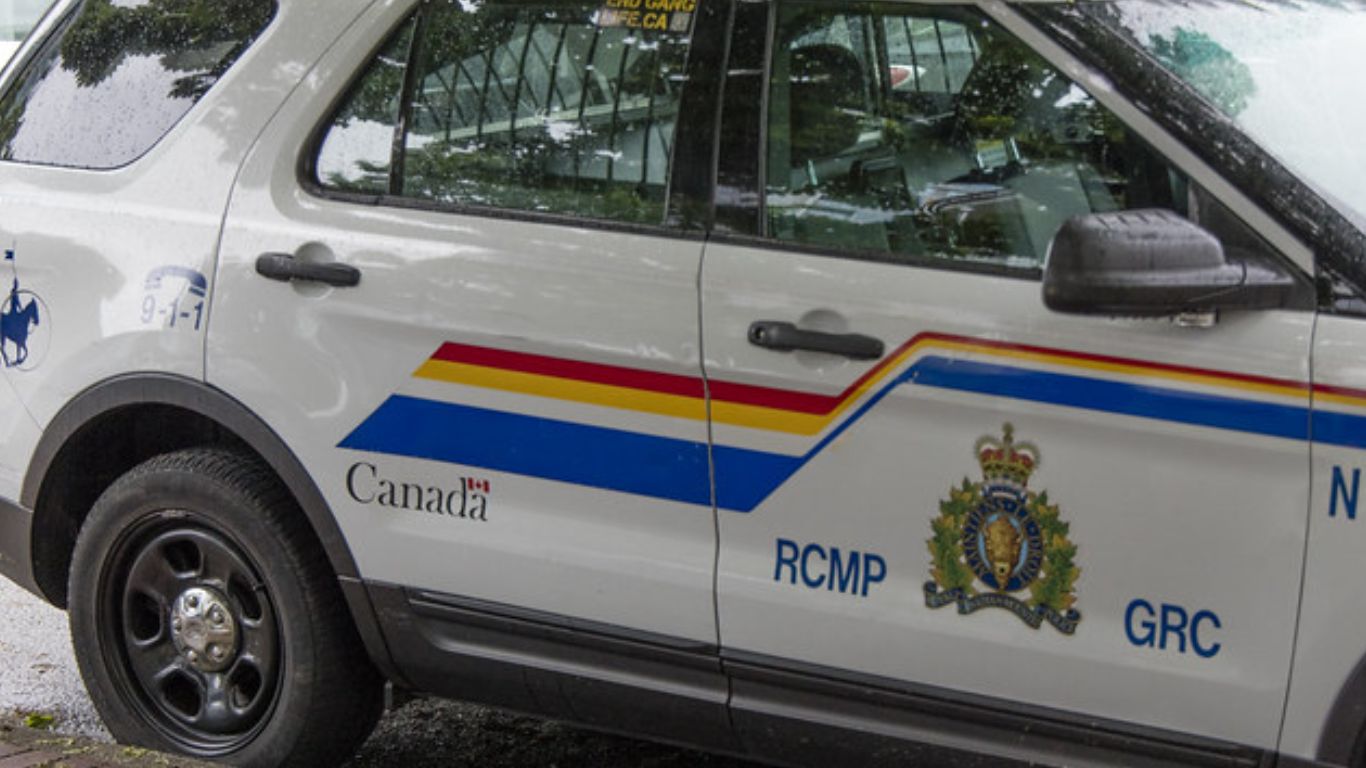


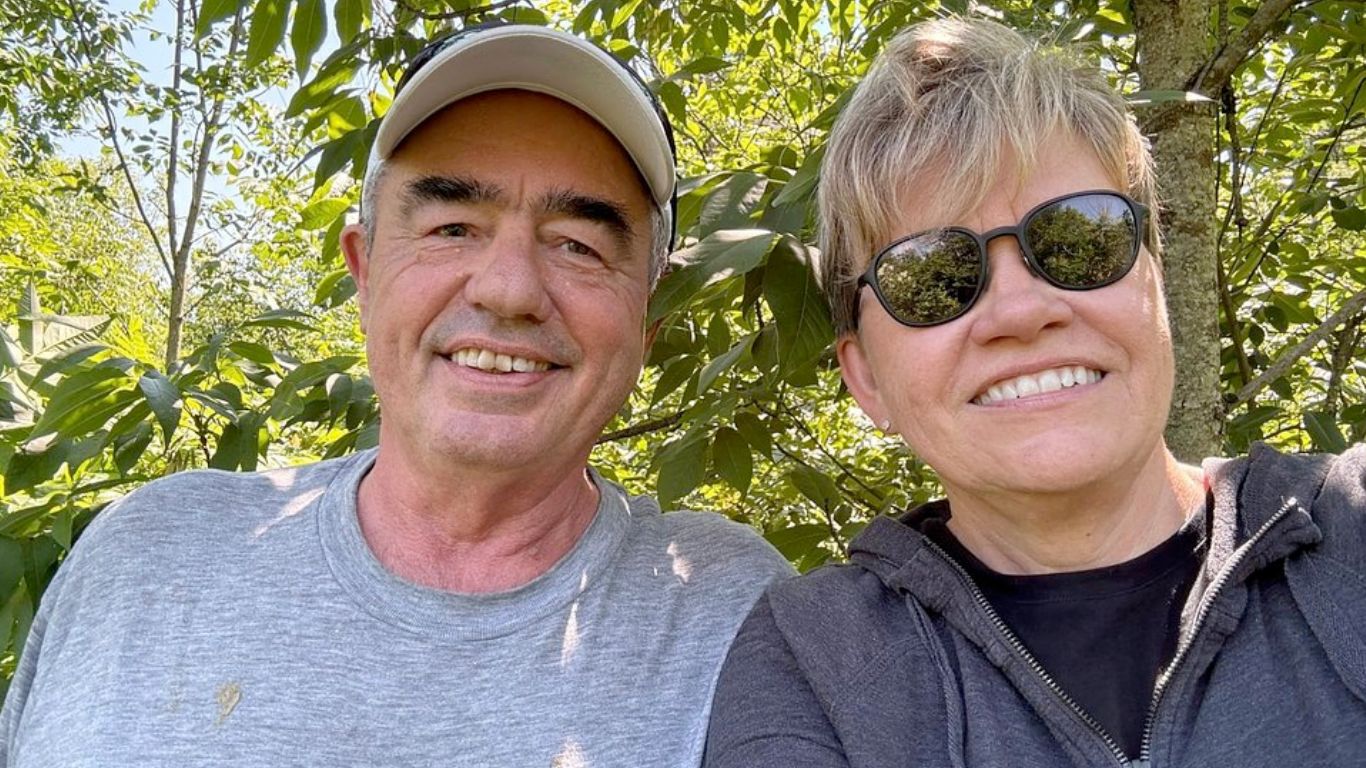

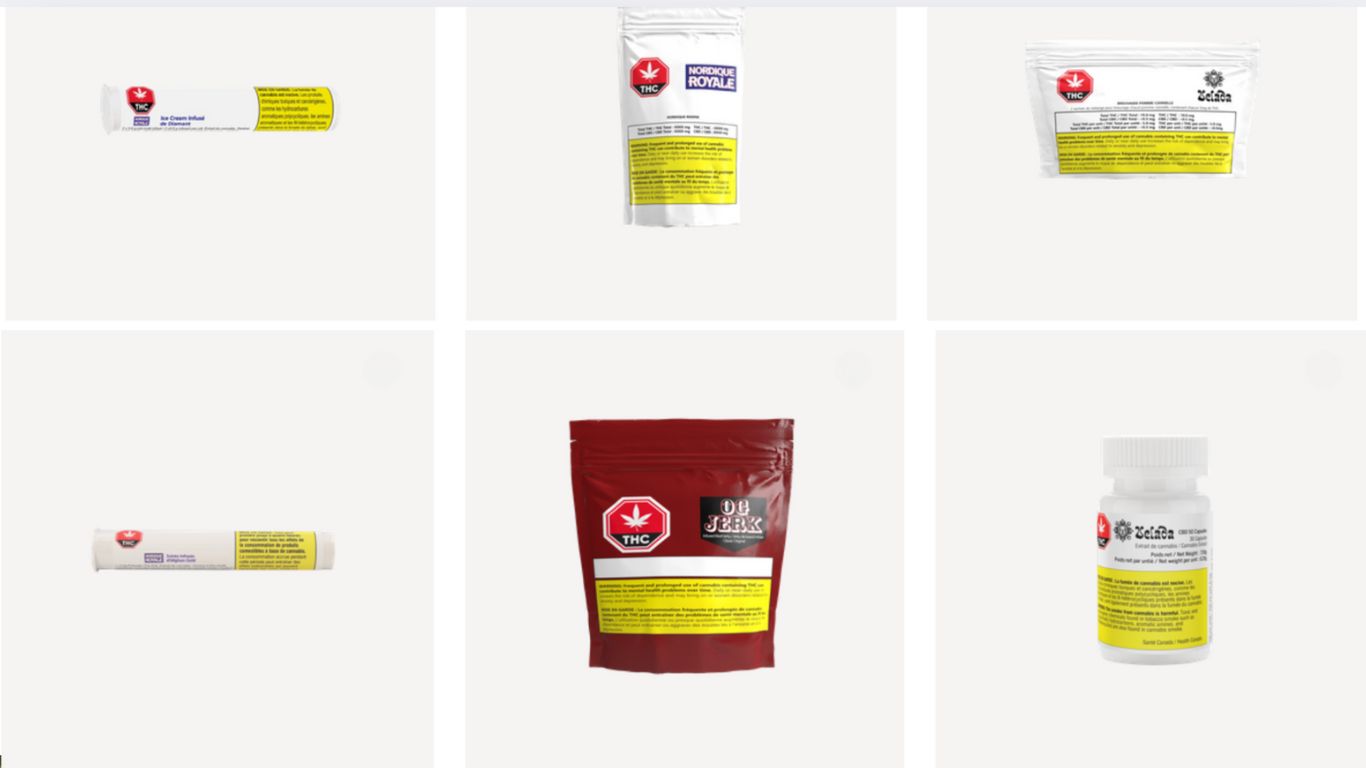








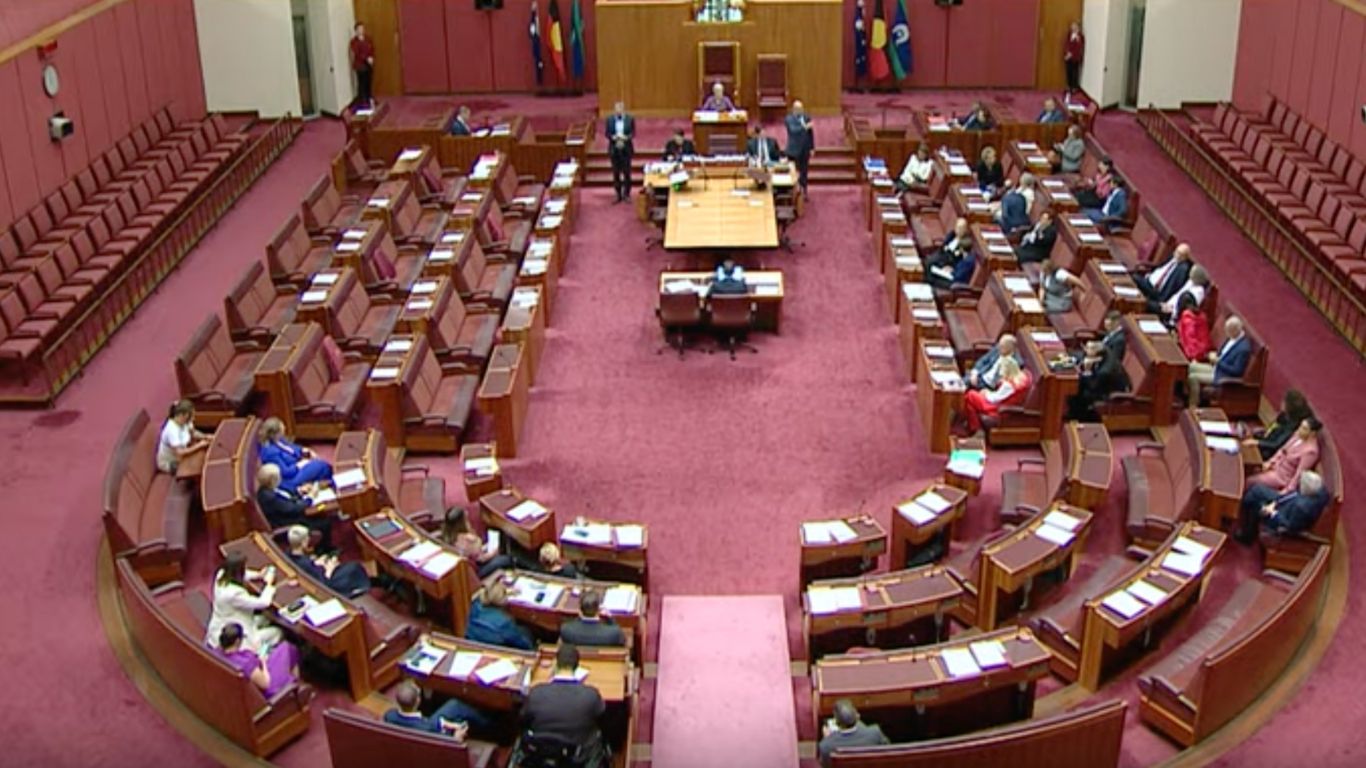




Recent Comments